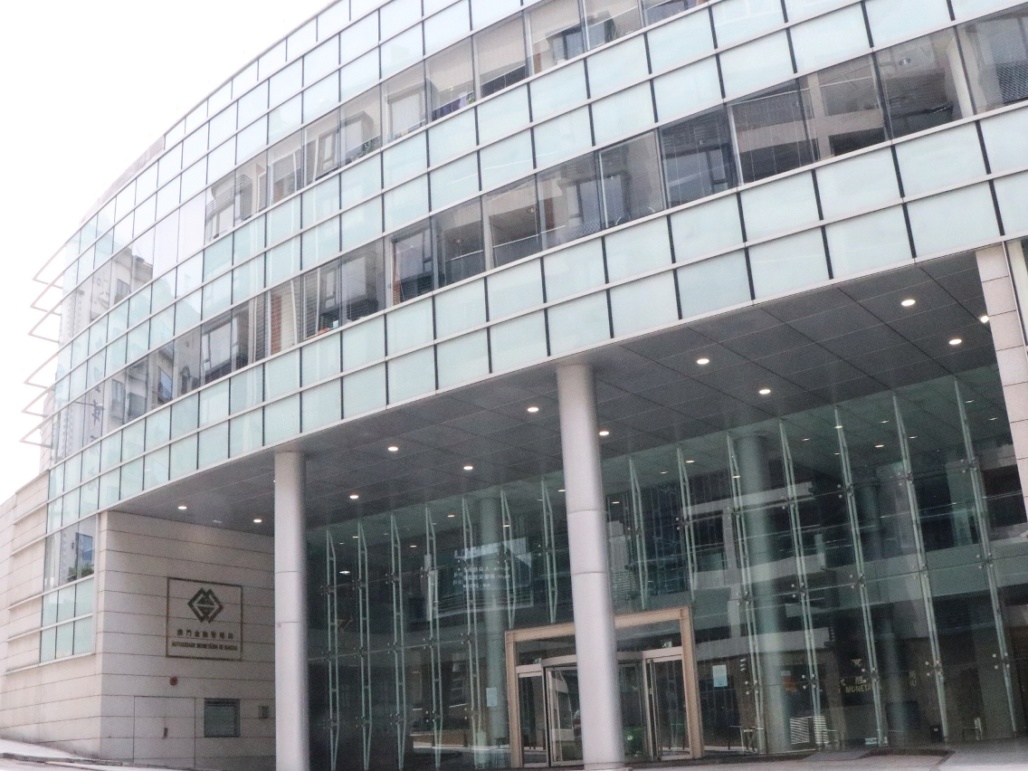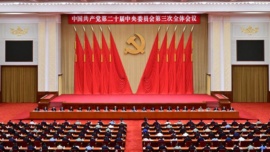The new securities law is in the works and Macau Business had access to the consultation paper which aims to strike a balance between supervision and innovation as the city embraces ‘modern finance’.
The supervisory entity responsible for overseeing the local financial sector will have investigation, inspection, and law enforcement powers over not just bond and securities issuers, but also lawyers and accountants involved in the sector, according to the consultation paper for the new securities law. The new regulatory framework will also allow space for the implementation of new technologies in the sector, particularly blockchain and distributed ledger technology.
A new Securities Law is in the works in the Macau SAR, as authorities aim to continue developing the financial sector and attract more companies to set up shop in the city.
With the changes in the New Financial System Act, which came into force on November 1, a framework for the public issuance of bonds in Macau was officially implemented.
In a statement, the Macau Monetary Authority of Macau indicated it has carried out an “exhaustive analysis and revisedthe guidelines and administrative procedures relating to bond activity”.
The de facto central bank of the city also launched a first round of consultations with the sector concerning a new Securities Law, with Macau Business getting access to the consultation document.
In the document, the SAR government states that the modern financial sector will play a “pivotal role” in line with the strategy of appropriate diversification, known as “1+4”.
“In 2021, the financial sector became the second-largest industry in MSAR, increasing from 6.9 per cent of the total value added in 2019 to 15.4 per cent in 2021. By the end of the third quarter of 2022, the total value of assets in the financial industry reached around MOP 2.7 trillion, equivalent to 19 times the value recorded in the year of Macau’s handover,” the document adds.
Harnessing bond power
The authorities underlined that there has been a gradual expansion of Macau”s bond market, accompanied by a progressive increase in the variety of issued bonds.
For the executive, the creation of a securities market equipped with adequate financial infrastructure represents a decisive instrument for the coordinated development of the MSAR and the Guangdong-Macau In-depth Cooperation Zone in Hengqin.
It will also, allow for the attraction of issuers and investors to the local securities market; the integration into the Renminbi internationalisation process; market diversification through the issuance of various types of securities, plus the contribution to strengthening the connection between the PRC, Portuguese-speaking Countries, and other countries and regions, and the creation of new employment.
The city”s bond market has surged to an impressive MOP502 billion as of September 2023, with approximately 32 per cent of bonds denominated in mainland Chinese currency, as reported by the China (Macau) Financial Asset Exchange.
These included local and foreign issuances, covering different types, namely corporate bonds, financial bonds and green bonds.
However, most of the listings were either by mainland state-controlled entities or even government authorities, including issuances of debt securities by the Ministry of Finance of China and the Government of Guangdong Province.
With this Securities Law bill, the Macau government aims to establish a general regulatory framework that can assist the operations of the Macau Securities Depository Centre (MSDC) and the local securities market.
In 2021, the MSDC ensured the registration, custody, settlement, and clearing of securities and was authorised to join the International Securities Services Association and the SWIFT International system.
“The aim is now, through this consultation, to fully listen to the opinions and recommendations of associations and other relevant entities in the financial sector of the Macau SAR.”
The executive also plans to collect opinions from the Office of the President of the Court of Final Instance and the Public Prosecutions Office, as well as representative bodies of the professional classes involved.

One entity to rule them all
The Macau government wants the law to be a “fundamental innovative milestone” in the regulation and development of the securities market.
“The bill represents an essential tool to ensure the integrity of securities, minimise risks associated with their trading and circulation, guarantee best practices and fair treatment of all participants, reduce systemic risk, and establish adequate mechanisms for supervision, oversight, and regulation,” reads the document.
One of the objectives of the bill is to establish the supervisory, monitoring, and regulatory powers of the securities market regulatory entity.
This entity will be responsible for the supervision of the parties involved in the financial sector, including bond issuers, lawyers, and accountants, and will be endowed with regulatory powers, as well as investigation, inspection, and law enforcement powers.
“The regulator has been granted a wide range of prudential supervision and ongoing monitoring powers, as well as appropriate powers of oversight and direct intervention, to ensure the regulator’s immediate response capability whenever the protection of investors” interests and market stability demands it,” AMCM notes.
The watchdog will not only be responsible for instructing the sanctioning procedures that fall within the scope of its competencies but also providing broad powers of direct intervention with market participants to protect investors” interests promptly and guarantee market stability.
In administrative infractions, the power to apply fines and additional sanctions, as well as to suspend them, belongs to the Chief Executive, without prejudice to delegation under the terms of the law.
The supervising entity may request delivery or proceed with the seizure, freezing, or inspection of any documents, assets, or objects related to the commission of illicit acts, regardless of the nature of their support.
It may also seal objects not seized in the facilities of individuals or entities subject to its supervision and request from any individuals or entities all clarifications and information deemed necessary for investigations or the instruction of processes under its jurisdiction.
Supervision and innovation
The SAR government took the financial regulations used in mainland China, Hong Kong, Portugal and Luxembourg as references to define the proposed law.
The new law will propose the adoption of a non-closed concept of securities, to leave room for the future introduction of derivatives and other financial products on the market.
The bill defines securities as representative documents of homogeneous legal situations suitable for trading in the market. These include shares, bonds; units of participation in collective investment institutions; autonomous warrants; detached rights from securities and other representative documents capable of market transmission.
The document also highlights that although dematerialized securities are an “international trend”, it recommends that the new securities law continue to recognise existing certificated securities, allowing their conversion into book-entry securities; however, the reverse conversion, from book-entry securities to certificated securities, would not be permitted.
“Considering the international trend of applying technology in securities markets, we leave legislative leeway for the future implementation of new technologies, particularly blockchain technology and distributed ledger technology, which are increasingly prominent internationally in trading platforms or infrastructures,” the document adds.
As for the development of a secondary market, the executive used the European Union’s Markets Financial Instruments Directive as a reference while applying “appropriate simplifications in line with the scale of Macau’s market and its legal sources.”.
“Thus, we propose that organised trading platforms include stock exchanges, Multilateral Trading Facilities (MTFs), and other organised trading platforms authorised by the regulatory entity,” the document adds.
The establishment of an organized trading platform will depend on authorization granted by the Chief Executive, following the opinion of the regulatory entity.
The securities traded in the market will be subject to negotiability requirements, being freely negotiable, fungible, and unencumbered securities, and it is up to the management entity to decide on their admission to trading, and regularly inform the regulatory entity.
The management entities will also be obligated to report suspicious orders and transactions that may constitute market abuse, such as obligated to immediately report to the regulatory entity any orders and transactions suspected of constituting market abuse.
Infractions in the securities market will be classified as “very serious”, “serious” and “minor”. Fines could vary from MOP2 million to MOP10 million, MOP20,000 to MOP5 million, and 20,000 to MOP3 million, respectively, with adjustments being possible based on further research and opinions of the industry.
Serious administrative infractions, such as not communicating securities transactions to the regulatory authority, can reach a fine of up to MOP10 million.
However, in administrative offences involving the use or transmission of privileged information and market manipulation, the fine could reach 15 per cent of the turnover, according to the latest accounts approved by the administrative body.
The regulatory entity may also issue orders directly to the entity managing the trading platform, to suspend or exclude operations on certain securities.
The period of suspension of the sanction will be set between three months and two years, starting from the date on which the period for judicial challenge of the sentencing decision ends.
The suspension may be conditioned on compliance with certain obligations, namely those considered necessary to regularise illegal situations, repair damages, or prevent dangers for the securities market or investors.
Consultation paper on the future Securities Law

“The bill represents an essential tool to ensure the integrity of securities, minimise risks associated with their trading and circulation, guarantee best practices and fair treatment of all participants, reduce systemic risk, and establish adequate mechanisms for supervision, oversight, and regulation”
“Considering the international trend of applying technology in securities markets, we leave legislative leeway for the future implementation of new technologies, particularly blockchain technology and distributed ledger technology, which are increasingly prominent internationally in trading platforms or infrastructures”
























